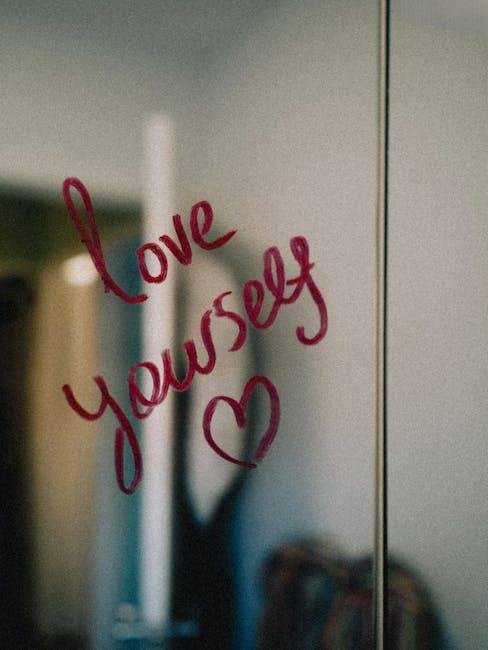In a world increasingly open to discussions about mental health, myths and misconceptions still cloud our understanding of this crucial aspect of well-being. With so much details at our fingertips, it can be challenging to discern fact from fiction. this article aims to shine a light on ten pervasive myths that continue to shape perceptions and attitudes towards mental health. By debunking these misconceptions, we hope to foster a more informed conversation that empowers individuals to seek help, embrace their mental wellness, and support others on their journeys. Join us as we unravel the truth behind these myths and take a notable step towards a more compassionate and informed society.
Debunking Stigma Myths: Understanding Mental health in a New Light
Mental health is often shrouded in misconceptions, leading to an array of damaging myths that can prevent individuals from seeking help or understanding their own experiences. A prevalent myth is that mental health issues are a sign of personal weakness. In truth, these conditions are complex and can affect anyone, regardless of their strength or resilience. Another misconception is that therapy is only for people with severe mental disorders. Therapy can be beneficial for anyone; it’s a space for self-exploration, healing, and personal growth. By dismantling these myths,we can foster a culture that encourages openness and compassion towards mental health struggles.
Moreover, the notion that mental illnesses are not real or are just a phase contributes considerably to the stigma surrounding these issues. This myth disregards extensive research demonstrating that mental health disorders are medical conditions that require proper care and treatment, similar to physical health ailments. Other myths include the belief that medications are the only solution or that once you seek help, you’ll be under treatment for life. in reality, effective mental health management can involve a combination of therapy, medication, lifestyle changes, and self-care practices, and many individuals find relief and lead fulfilling lives after a period of treatment.

The Reality of Treatment: Exploring Effective Solutions for Mental Wellness
Mental health treatment has long been shrouded in misconceptions that can hinder individuals from seeking the help they need. understanding effective solutions for mental wellness involves debunking myths that perpetuate stigma and misinformation. For instance, many believe that therapy is only for those with severe issues or that medications are a sign of weakness. In reality, mental health treatment is a valuable resource for anyone navigating life’s challenges, whether they’re battling anxiety, depression, or seeking personal growth. Some effective solutions include:
- Therapy: Various modalities such as cognitive-behavioral therapy (CBT) and mindfulness-based therapy have proven effective for various mental health concerns.
- Medication: Prescribed and monitored by professionals, medications can definitely help balance brain chemistry and enhance overall well-being.
- Support Groups: Connecting with others who share similar experiences fosters community and understanding.
- Wellness Practices: Incorporating mindfulness,exercise,and healthy eating can complement professional treatment.
Another area fraught with myths is the notion that mental health issues are purely a “personal failing.” This view overlooks the complex interplay of biological, psychological, and environmental factors that contribute to mental wellness. By embracing a holistic approach, individuals can explore a variety of strategies tailored to their unique needs.The importance of early intervention cannot be overstated; recognizing signs and symptoms early can lead to more effective treatment outcomes. Below is a simple comparison of common misconceptions and the realities of mental health:
| Myth | Reality |
|---|---|
| Only those with serious issues need treatment | Anyone can benefit from mental health support |
| Therapy is a sign of weakness | Seeking help shows strength and self-awareness |
| Medication is the only solution | A variety of treatments exist,and often a combination works best |
| Talking about problems doesn’t help | Open discussions can lead to understanding and healing |

Recognizing the Spectrum: Dissecting Common Misconceptions About Mental Illness
Mental illness is often enveloped in myths that skew our understanding and fuel stigma. A common misconception is that mental health issues are a sign of personal weakness. in reality, these conditions are complex and can arise from a combination of genetic, biological, environmental, and psychological factors. It’s vital to recognize that anyone can experience mental health challenges, regardless of their character or strength.
Another prevalent myth is that therapy is only for those who are “really” troubled. Many people believe that seeking help means you must be at a breaking point,but this couldn’t be further from the truth. Therapy can be a valuable tool for anyone,offering a space for growth,self-reflection,and resilience. Here are a few key points to dismantle these misconceptions:
- Mental illnesses are real medical conditions.
- Therapy can benefit everyone, not just those in crisis.
- Recovery is possible, and many lead fulfilling lives.
- Talking about mental health helps reduce stigma.

Building resilience: Practical Tips for Supporting Your Mental Health Journey
Dispelling the myths surrounding mental health is crucial for building resilience. It’s frequently enough said that seeking help signifies weakness, but in reality, reaching out is a heroic step towards growth and healing.understanding that mental health struggles are not a personal failure can empower individuals to take control of their mental well-being. Here are some ways to encourage this positive viewpoint:
- Educate yourself and others about mental health to foster understanding.
- Challenge the stigma by sharing your story or supporting those who do.
- Encourage open dialogues in your circles to normalize discussions about feelings.
Furthermore, it’s essential to recognize that recovery is not linear, and setbacks can happen. Adopting a growth mindset can help you view challenges as opportunities for learning rather than obstacles. Here are strategies to enhance your resilience:
| Strategy | Benefit |
|---|---|
| Practice mindfulness | Reduces stress and increases self-awareness. |
| Establish routine | Creates structure and a sense of control. |
| Connect with others | Builds a support network and combats loneliness. |
final Thoughts
As we draw the curtain on these ten prevalent myths surrounding mental health, it’s clear that debunking misconceptions is just as crucial as seeking understanding. mental health is a complex and nuanced subject, woven into the tapestry of our daily lives in ways both visible and hidden. By challenging outdated beliefs, we can foster a more informed and compassionate society—one that encourages open dialogues and promotes mental wellness for all.
Let’s embrace the truth that mental health is not a sign of weakness,but a vital part of our overall well-being. by dispelling these myths, we take important steps toward a world where everyone feels empowered to seek help, share their experiences, and advocate for themselves and others. Remember, knowledge is a powerful tool; let it guide us to a more supportive and understanding future. Together, we can rewrite the narrative surrounding mental health and contribute to a culture of empathy, healing, and growth. Thank you for joining us on this journey toward clarity and awareness—let’s continue to challenge the status quo and support each other along the way.

